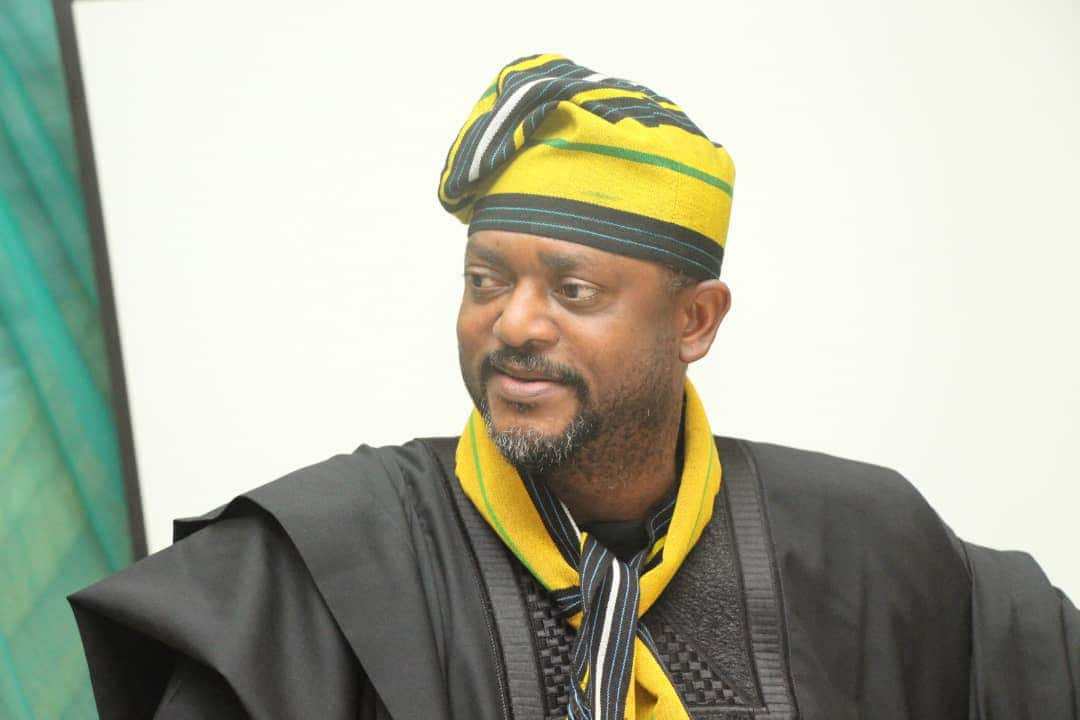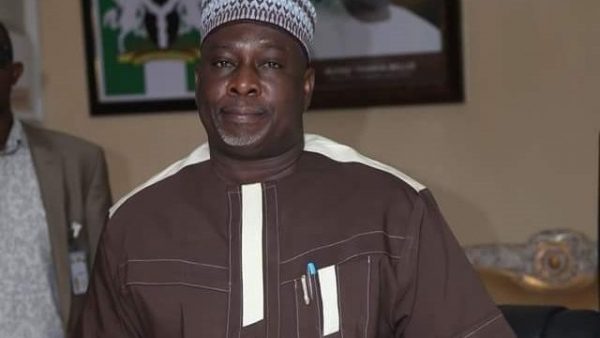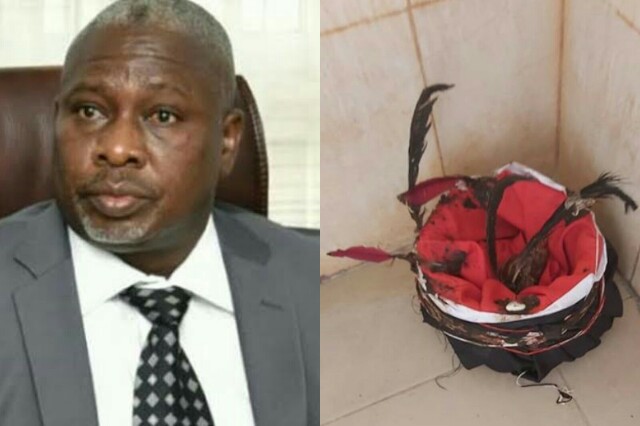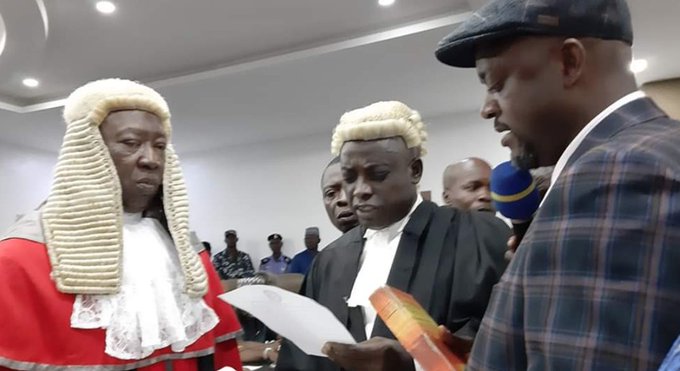Politics
Onoja To Be Sworn In As Kogi Assembly Impeaches Deputy Governor

Barely one month to the governorship election and after months of protracted rift with his boss, Governor Yahaya Bello, the Kogi State House of Assembly, at a closed-door session, yesterday, impeached the embattled Deputy Governor of the state, Simon Achuba.
In his stead, the running mate to Bello in the forthcoming November election, Chief Edward Onoja, who recently resigned as Chief of Staff to the governor, is expected to be sworn in today as the new Deputy Governor.
The impeachment followed the submission earlier in the day of the report of the committee set up by the state Chief Judge (CJ), Justice Nadir Ajana, to investigate allegations of gross misconduct leveled against the former deputy governor by the House.
Achuba, in a swift reaction, said his impeachment was not a true reflection of the committee’s report.
Speaking with The Guardian, he noted that the decision to impeach him would crash, insisting that what the state government was celebrating is not a true reflection of the committee’s submission.
According to him, the decision would not stand, even as he lamented that the APC is coming out from a different perspective from even what was allegedly done wrong by past administrations.
Achuba said he has the certified true copy of the committee’s report, saying he was surprised that the Assembly would claim to have impeached him when the committee’s report and finding says otherwise.
He described the decision to impeach him as complete nonsense, vowing to seek redress.
“Kogi State cannot be doing the wrong things under the present administration and think it will always get away with it,” Achuba lamented.
Leader of the House, Hassan Bello Abdulahi, representing Ajaokuta State Constituency, who announced the decision of the House, said Achuba stood impeached after careful consideration of the report of the John Bayasea-led committee submitted earlier in the day.
Abdulahi stated that the report was received, studied and deliberated upon and a unanimous decision was arrived at to impeach Achuba and “he, therefore, stands impeached,” adding that with his impeachment, justice had been served.
The seven-man committee submitted the report to the Speaker, Kolawole, in a brief ceremony, after which the house went into a closed-door session, where the report was considered, deliberated and acted upon.
The committee was set up in August following allegations of gross misconduct leveled against Achuba when he accused Bello of withholding his salaries and imprests since 2017, an allegation denied by the government during hearing by the committee.
Director General, Media and Publicity to the Governor, Kingsley Fanwo, also accused the former deputy governor of attempting to set the state on fire by alleging that Bello was orchestrating violence, which he said was an incitement against his boss and the government.
Achuba’s denial of the allegations, however, did not change anything, as he was eventually impeached.
The seven-member Judicial Panel of Enquiry was set up by Justice Nasir Ajanah on August 26 to investigate the allegations of gross misconduct leveled against Achuba.
Barring any change, ORIENTAL TIMES gathered that Onoja would be screened by the Assembly today and sworn into office immediately.
Achuba was sworn in as deputy governor on February 10, 2016, following the refusal of James Faleke, the then running mate to the late Prince Abubakar Audu to deputise for Bello.
While the journey was still smooth, he represented the governor in major events within and outside the state, but not too long into the “honeymoon,” some cracks and cold war began to manifest between the governor and his one-time loyal deputy.
Soon, there were reports of alleged sidelining of Achuba in the running of affairs of the state. The deputy governor’s office became less active or largely redundant for a greater part of the administration until his impeachment yesterday.
One of the earliest signs of the existence of a crack between Bello and Achuba was when the former travelled out of the country for about two weeks to seek medical attention sometime in November 2016 and refused to hand over power to his deputy before travelling out, thus raising concerns of the existence of a serious crack in their relationship and a vacuum in the administration of the state.
Another development was when the governor went on a trip to Poland in December last year, alongside President Muhammadu Buhari, for the United Nations (UN) Conference on Climate Change and handed over power to Kolawole, who was then very new in the saddle, a development that elicited another serious concern by some stakeholders.
But within 24 hours, a circular granting the deputy governor a two-month leave was released. Curious enough, Achuba was said to have applied for and was granted a two-month annual leave almost the same period the governor was away from the country. Many saw this as an indication that all might not be well between the governor and his deputy, saying it was unusual for a deputy governor to have proceeded on leave at the same time as his principal.
Achuba’s ordeal, it was learnt, must have heightened following his alleged secret dealings with the opposition Peoples Democratic Party (PDP) in the build-up to this year’s general elections. The face-off became public after Achuba addressed a press conference in February, where he opened up on some of the challenges he was facing and raised alarm that his life and those of his family members were in grave danger following the withdrawal of his security details allegedly on the orders of the ADC to the governor.
He further alleged that the same ADC to the governor had summoned all his security details to the Government House on February 15 for a briefing and kept them in detention without any explanation.
Although the security details were eventually restored then, there were still indications that the feud was far from being over.
One of the implications of the feud between the governor and his deputy was the likelihood of Achuba being fielded as running mate to Bello, in the event that he picked the party’s ticket. Observers had predicted that Bello would most likely pick his then Chief of Staff, Onoja, which he eventually did.
The crisis culminated in the alleged stoppage of Achuba’s entitlement and subsequent setting up of the panel to investigate allegations of gross misconduct against him.
Achuba had approached the Presidency to find solution to the face-off between him and his principal and even threatened court action against the governor, but all that seems to be history now.



